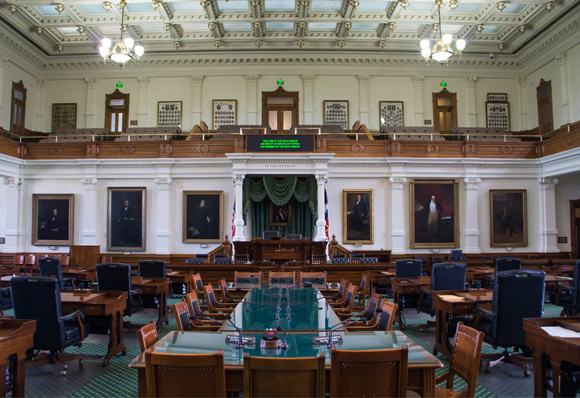Since October 1, most US government offices and agencies have been closed. This was because the interim budget for the 2014 fiscal year was not approved on time.
The Democratic Obama administration and the Republican Party are always on opposite sides during budget negotiations, and in March of this year, compulsory reductions on annual spending were initiated. Subsequently, the US economy started to recover. The tax increases previously approved by both parties, along with the spending cuts, started to have a positive effect, and the federal debt decreased. As a result, the two parties seemed less concerned about the budget negotiations. This led to the Democratic Party assuming that agreements would be reached without too much difficulty for the budget negotiations in September, as well as the raising of the federal debt ceiling negotiations in October.
But, the situation changed suddenly when the Republican Party decided to adopt a brinksmanship strategy of making hostages of the interim budget and the debt ceiling increase in an attempt to force some compromise on the health care insurance reform act.
The health care insurance reform, one of the major achievements of the Obama administration, is strongly disliked by the Republican Party, who regards it as “socialism.” They tried to quash health care insurance reform more than 40 times during congressional deliberations, but the Democratic-majority senate was able to block these attempts. In the summer of 2012, the Supreme Court ruled that the health care insurance reform is constitutional. In autumn that year, the Republican Party, insisting on the abolishment of the health insurance reform, actually lost both the Presidential election and senate seats. Under the health insurance reform act, a new medical insurance purchase system called “Exchange” was started in October, and the obligation for all US citizens to enroll in a health insurance program will go into effect in January 2014, so the implementation phase has already begun. Then, the Republican Party came up with a brinksmanship strategy, saying “We will not agree to an interim budget or a debt ceiling increase unless the Obama administration reconsiders the health insurance reforms.”
This Republican “game-changer” strategy, however, was futile, because the health insurance reforms are not directly related to the budget issues. It would make more sense if the Republican Party was demanding reduction of the deficit or spending cuts, but demanding a revision of the health insurance act is unsupportable. Furthermore, the attempt to overturn an act that was approved three years ago is tantamount to challenging the entire democratic political system. The health insurance reforms were properly legislated, and approved by the Supreme Court; and, US citizens indicated their support by reelecting President Obama for a second term. In other words, because this health insurance reform is a product of the democratic process, the Republican Party has been unable to attack. As a last resort, they stooped to a strategy of taking the budget and the debt ceiling hostage to obtain what they want. Both Obama and the Democratic Party refused to give in, leading to a government shutdown.
























































